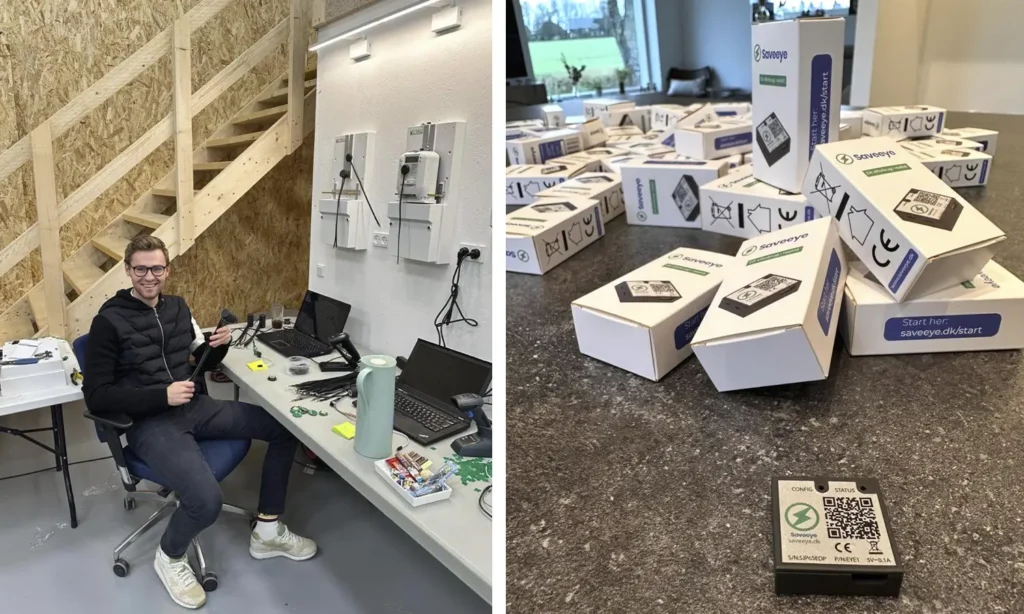This post is also available in: Danish
With Europe’s plan to double its production of microchips by 2030, a huge market is opening up and a new era for Danish production in the field.
Microchips are a key technology in the digital society, and thus also a decisive factor for Denmark’s security policy position. With an increasing reliance on the small devices, it is crucial for Denmark to ensure both access to and control over microchip technology. An independent and secure production is not just a matter of economic growth, but a matter of security of supply.
“Microchips play a critical role in Kamstrup’s Smart Metering products, and thus high supply stability is essential to ensure stable production and reliable deliveries to our customers. There are increased risks in global trade in both the short and long term, and the European region needs a stable and efficient alternative to the well-known Eastern-dominated supply chains of microchips. In interaction with Danish know-how and research, real European/Danish production of microchips will ensure high security of supply and opportunities for growth and competitive advantages for Danish businesses. As a Danish company, we support initiatives that ensure research and a Danish ecosystem for microchips,” Says Carsten Kusk, sourcing Vice President at Kamstrup.
Takeaways from the workshop
On February 27th, an open workshop was held in Aarhus, Denmark, with around 100 representatives from universities, industry and public decision-makers.

Aarhus University’s Department of Electrical and Computer Engineering, in collaboration with the Confederation of Danish Industry, Force Technology and the Danish Ministry of Education, set the stage to shape the microchip landscape of the future. Discussions included investment opportunities, international cooperation, new technologies in the field, business development and research strategies for the future of the industry.
Representative of the Confederation of Danish Industry, Lars Rasmussen writes on his LinkedIn:
It is important to have an ambitious Danish plan for participation in the EU microchip law. This opens up an opportunity to develop the Danish microchip ecosystem in sectors such as energy, health and advanced technologies such as quantum technology.
A long-term strategy is required that focuses on education, research and industry development. Where the prioritization should be niche areas where Denmark already has a strong position.
Funding is crucial for Danish participation in the EU microchip law. There is a high demand for targeted funding for innovation and a desire for government support to maintain and develop our niche competencies. Opportunities to bring pilot lines home, including in relation to photonic quantum chips, should be ensured.
It’s important to look at the education system and strengthen microchip education. There is a high demand for skilled labor in the industry. Microchips have become a topic of security policy. It is crucial that we address a changing world and clarify access to finance and investment. There should be clear rules for international collaborations and what can be collaborated on.
What is the European Chips Act?
1 billion microchips were produced globally in 2020. Only 10% was produced in the European market.
The Regulation “European Chips Act” is intended to strengthen Europe’s competitiveness and resilience in semiconductor technologies and will help to achieve the following actions.
- Strengthen Europe’s research and technology leadership towards smaller and faster chips.
- Establish a framework to increase production capacity to 20% of the global market by 2030.
- Build and strengthen the capacity to innovate in the design, production and packaging of advanced chips.
- Develop an in-depth understanding of global semiconductor supply chains.
- Address the skills shortage, attract new talent and support the emergence of a skilled workforce.
The regulation was approved by the European Parliament and the European Council and entered into force on September 21, 2023.
















 Kære læser, du er meget velkommen til at dele vores artikler på sociale medier, linke eller referere til artikler eller content på TechSavvy.media. Men ønsker du helt eller delvist at kopiere indhold fra sitet må det kun ske efter aftale med vores redaktion på editorial@techsavvy.media.
Kære læser, du er meget velkommen til at dele vores artikler på sociale medier, linke eller referere til artikler eller content på TechSavvy.media. Men ønsker du helt eller delvist at kopiere indhold fra sitet må det kun ske efter aftale med vores redaktion på editorial@techsavvy.media.
 Kære læser, du er meget velkommen til at dele vores artikler på sociale medier, linke eller referere til artikler eller content på TechSavvy.media. Men ønsker du helt eller delvist at kopiere indhold fra sitet må det kun ske efter aftale med vores redaktion på editorial@techsavvy.media.
Kære læser, du er meget velkommen til at dele vores artikler på sociale medier, linke eller referere til artikler eller content på TechSavvy.media. Men ønsker du helt eller delvist at kopiere indhold fra sitet må det kun ske efter aftale med vores redaktion på editorial@techsavvy.media.